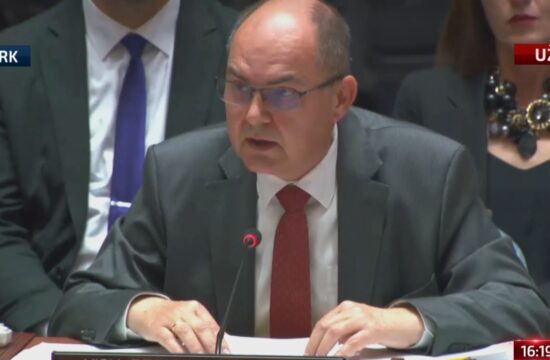
Former Republika Srpska (RS) entity Special Police Commander, Goran Saric, was acquitted of charges of involvement in the 1995 Srebrenica genocide.
The Appeals Chamber of the Court of Bosnia and Herzegovina said the Prosecution's complaint was unfounded, thus confirming the first instance verdict from February this year.
The first instance verdict acquitted the former RS Special Police Commander Goran Saric of charges that he ordered and controlled his deputy Ljubomir Borovcanin and helped members of the joint criminal enterprise in committing genocide in Srebrenica, which left more than 7,000 people dead and over 40,000 displaced.
Ljubomir Borovcanin was sentenced to 17 years in prison for the crimes committed in Srebrenica, by the International Criminal Tribunal for the former Yugoslavia.
Borovcanin was one of seven former high-ranking Bosnian Serb military and police officials convicted in the Popovic et al. case. The Trial Chamber rendered its judgement in the case on 10 June 2010 and convicted Borovcanin of aiding and abetting extermination, murder, persecution and forcible transfer.
Apart from crimes committed in eastern municipalities of Bratunac and Srebrenica, Saric was acquitted of war crimes charges in the Zvornik area located on the eastern border with Serbia.
“As in the first instance verdict, the appeals chamber confirmed that the attack was committed by the RS Interior Ministry's units whose member was Saric but the trial aimed to determine whether he was the one who personally ordered and oversaw the execution of this crime and whether he took part in it,” the Chamber said and concluded that the Appeals Chamber definitely determined he took no part in the crime. “Accordingly, the Prosecution's appeal was rejected as unfounded.”
This verdict is final without a possibility of appeal.
In an earlier trial, Saric was also acquitted of crimes committed in the area of Sarajevo.
On July 11, 1995, Bosnian Serb forces overran the eastern Bosnian enclave and rounded up the town’s Muslim Bosniaks, separated men from women and little children and systematically executed more tan 7,000 men and boys.
Two international courts, The International Criminal Tribunal for the Former Yugoslavia (ICTY) and the International Court of Justice (ICJ) later ruled that the massacre was an act of genocide. International and regional courts have sentenced 45 people for what happened in Srebrenica to a total of more than 700 years behind bars.




